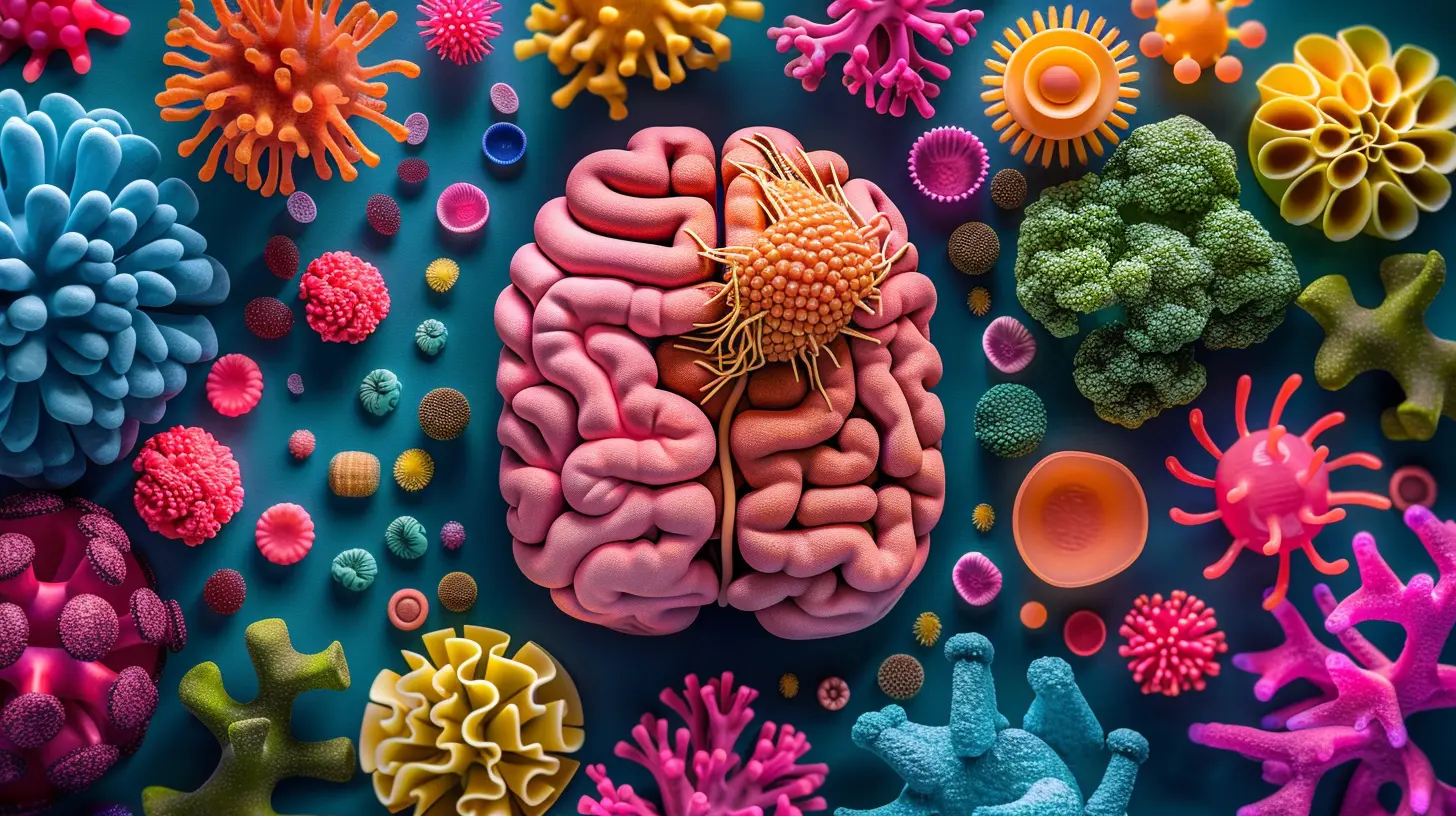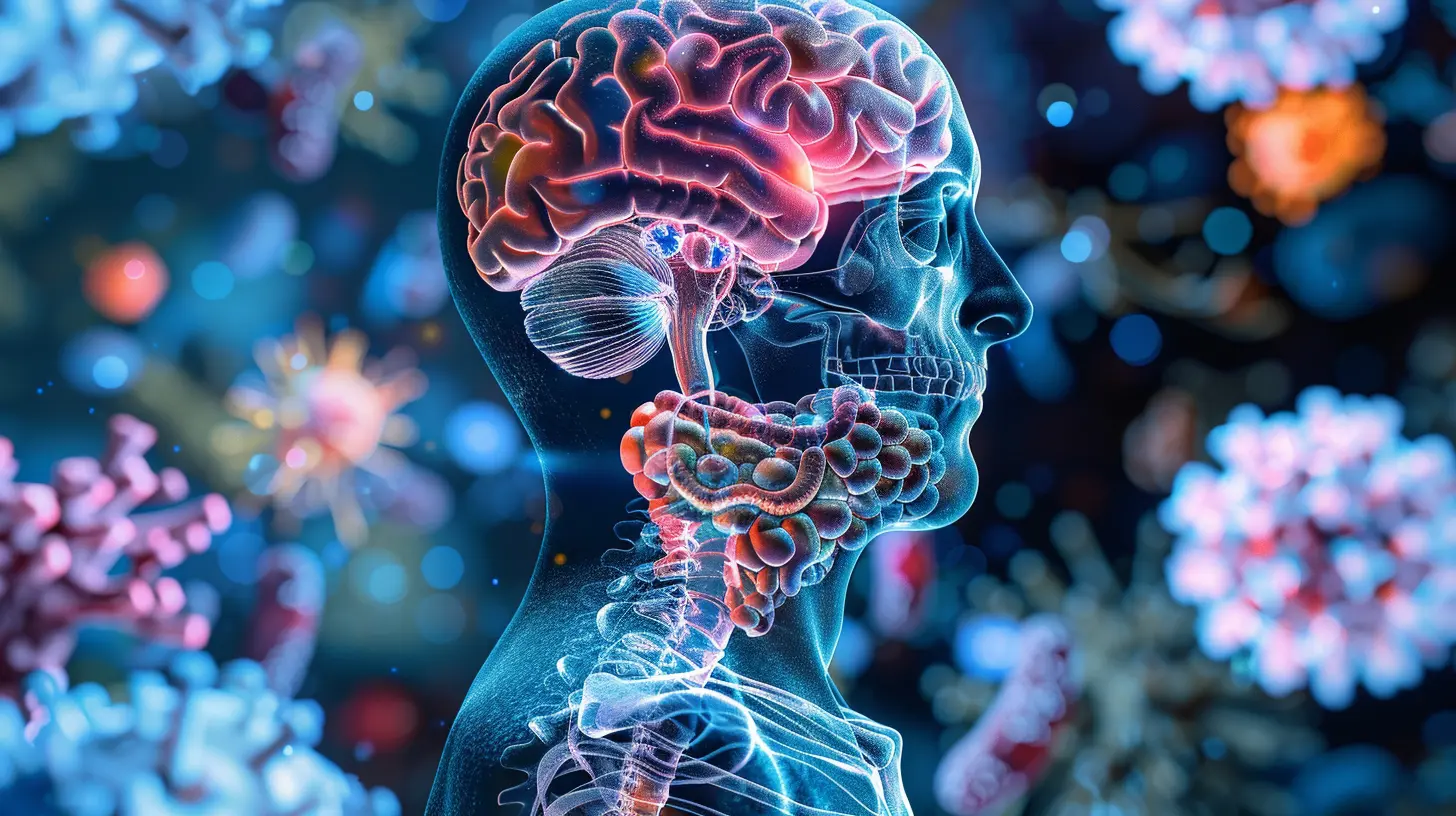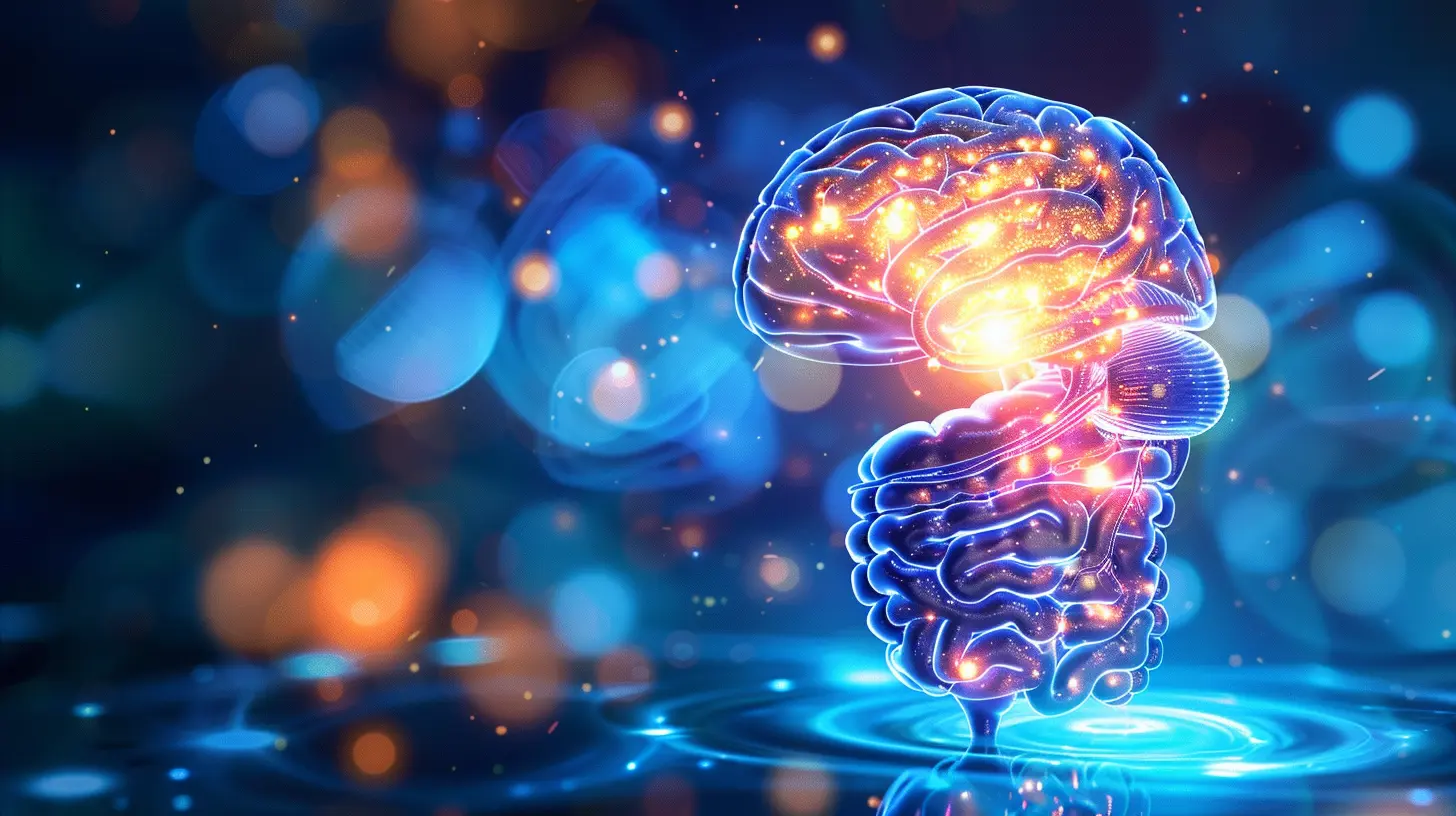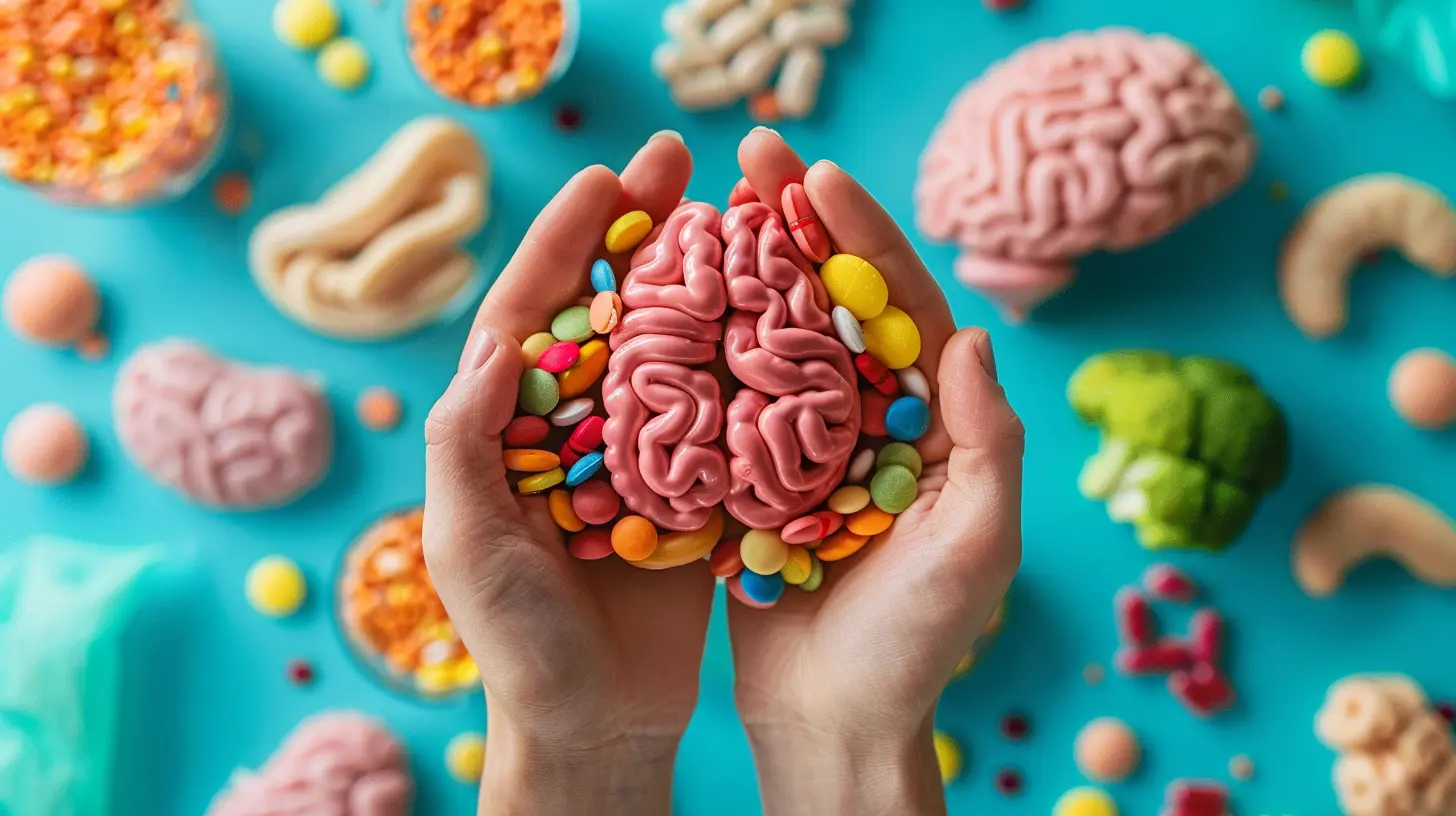Understanding the Gut-Brain Connection and Its Importance
8 July 2025
Introduction
Ever had a "gut feeling" about something? Or felt butterflies in your stomach when nervous? These aren’t just random sensations—there’s a real connection between your gut and your brain. Scientists call it the gut-brain axis, and it plays a crucial role in your mental and physical health.
But what exactly is this connection, and why does it matter so much? Let’s dive deep into the science behind the gut-brain connection and how keeping your gut happy can improve your overall well-being.

What is the Gut-Brain Connection?
The gut-brain connection is a two-way communication system linking your digestive system with your brain. This happens through a complex network involving the nervous system, immune system, hormones, and the gut microbiome.The major players in this communication include:
- The Vagus Nerve – The primary communication highway between your gut and brain.
- Neurotransmitters – Chemicals like serotonin and dopamine, which affect mood and emotions, are produced in large amounts in the gut.
- Gut Microbiome – The trillions of bacteria living in your intestines that influence everything from digestion to mental health.
Your gut and brain are constantly talking to each other. If one is out of balance, the other is likely to suffer as well.

How Your Gut Affects Your Brain
1. The Gut Produces Neurotransmitters
Did you know that about 90% of serotonin (the "feel-good" chemical) is made in the gut? This neurotransmitter plays a massive role in regulating mood, anxiety, and overall emotional well-being.If your gut microbiome is out of balance, it can lead to low serotonin levels, increasing the risk of depression, anxiety, and even mood swings.
2. Inflammation Can Impact Mental Health
An unhealthy gut can lead to chronic inflammation, which has been linked to depression, anxiety, and cognitive decline. When harmful bacteria overgrow in the intestines, they can trigger the release of inflammatory markers that reach the brain and affect its function.3. Leaky Gut and Brain Fog
Ever feel mentally sluggish, forgetful, or unable to concentrate? This could be due to leaky gut syndrome, a condition where the intestinal lining becomes too permeable, allowing toxins and partially digested food to enter the bloodstream. Studies suggest that leaky gut may contribute to brain fog, fatigue, and even neurodegenerative conditions like Alzheimer’s.4. Stress Impacts the Gut
Stress isn't just in your head—it physically affects your gut. When you're anxious or stressed, your body releases cortisol, a hormone that can disrupt digestion, slow down gut movement, and even alter the microbiome balance.Ever experienced digestive issues during stressful situations? That’s your gut-brain connection in action.

How to Improve the Gut-Brain Connection
Now that we know how closely the gut and brain are linked, let’s discuss how you can support this connection to boost your mental clarity, mood, and digestive health.1. Eat a Gut-Friendly Diet
Your gut microbiome thrives on the right kind of foods. To keep it balanced, focus on:- Probiotic Foods (yogurt, kefir, sauerkraut, kimchi) – These introduce beneficial bacteria into your gut.
- Prebiotic Foods (bananas, garlic, onions, asparagus) – These feed the good bacteria, helping them flourish.
- Fiber-Rich Foods (whole grains, legumes, fruits, vegetables) – Essential for a healthy gut lining and digestion.
- Healthy Fats (olive oil, avocado, nuts, fatty fish) – Reduce gut inflammation and support brain function.
2. Stay Away from Gut Disruptors
Certain foods and habits can wreak havoc on your gut, affecting both digestion and mood. Try to limit or avoid:- Processed Foods & Refined Sugars – These fuel harmful gut bacteria and promote inflammation.
- Artificial Sweeteners – Some can negatively impact gut bacteria and lead to digestive discomfort.
- Chronic Antibiotic Use – While sometimes necessary, overuse kills both good and bad gut bacteria.
3. Manage Stress Effectively
Since stress directly affects the gut, finding ways to decrease stress levels can improve gut health. Some proven stress-busters include:- Meditation & Deep Breathing – Helps activate the vagus nerve and calms the nervous system.
- Regular Exercise – Supports a balanced microbiome and reduces stress hormones.
- Adequate Sleep – Poor sleep disrupts gut bacteria and increases inflammation.
4. Stay Hydrated
Water is essential for digestion and nutrient absorption. Dehydration can slow down gut function and lead to constipation, which affects toxin elimination. Aim for at least 8 glasses of water per day for optimal gut health.5. Try Natural Supplements
Sometimes, diet alone may not be enough to maintain a healthy gut-brain connection. You can consider adding:- Probiotic Supplements – To restore a healthy gut microbiome.
- Omega-3 Fatty Acids – Known to reduce brain inflammation and support cognitive function.
- Adaptogens (Ashwagandha, Rhodiola) – Help in stress management and reduce cortisol levels.

Signs Your Gut-Brain Connection is Struggling
How do you know if you need to pay more attention to your gut-brain health? Look out for these warning signs:- Frequent bloating, gas, or constipation
- Brain fog or trouble concentrating
- Anxiety and mood swings
- Poor sleep or persistent fatigue
- Skin problems like acne or eczema
If you're experiencing these symptoms regularly, it may be time to make some lifestyle changes to support your gut-brain health.
Conclusion
The gut-brain connection isn’t just a trending health topic—it’s a fundamental aspect of our well-being. A healthy gut means a healthier brain, better mood, and improved overall health.By making simple dietary and lifestyle changes, you can strengthen this connection and feel more energized, focused, and emotionally balanced. So, start treating your gut like your second brain—because, in many ways, it actually is!
all images in this post were generated using AI tools
Category:
Gut HealthAuthor:

Jackson Mahoney
Discussion
rate this article
1 comments
Remington Harris
Your gut and brain are like besties—keeping each other happy!
July 23, 2025 at 2:45 PM

Jackson Mahoney
Absolutely! The gut-brain connection is crucial for overall well-being, as a healthy gut can positively impact mood and cognition. Thanks for highlighting this important relationship!


